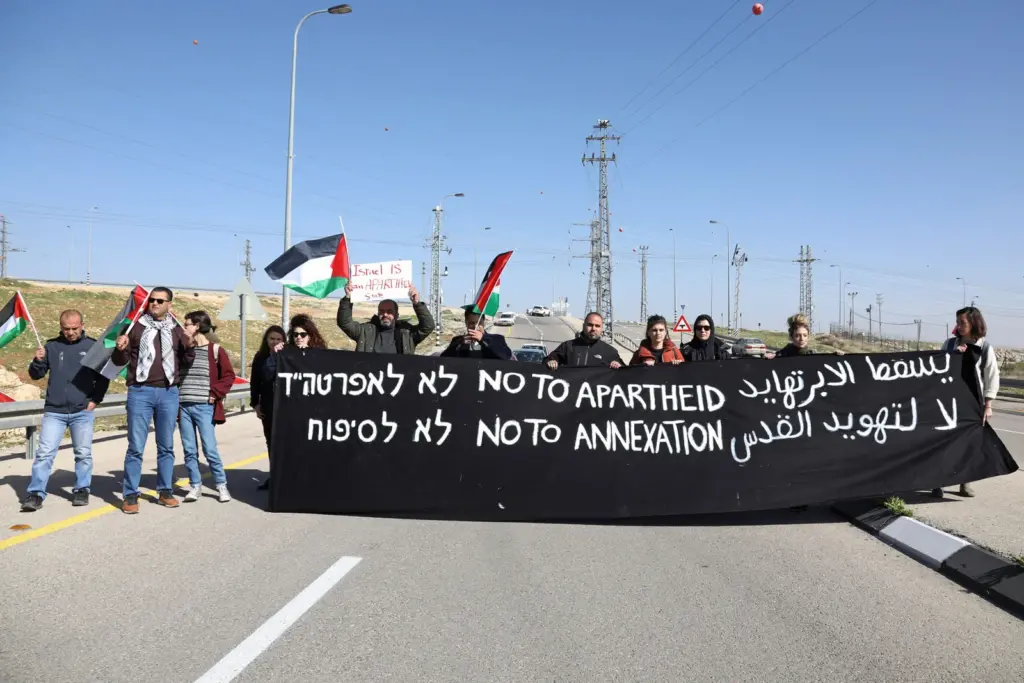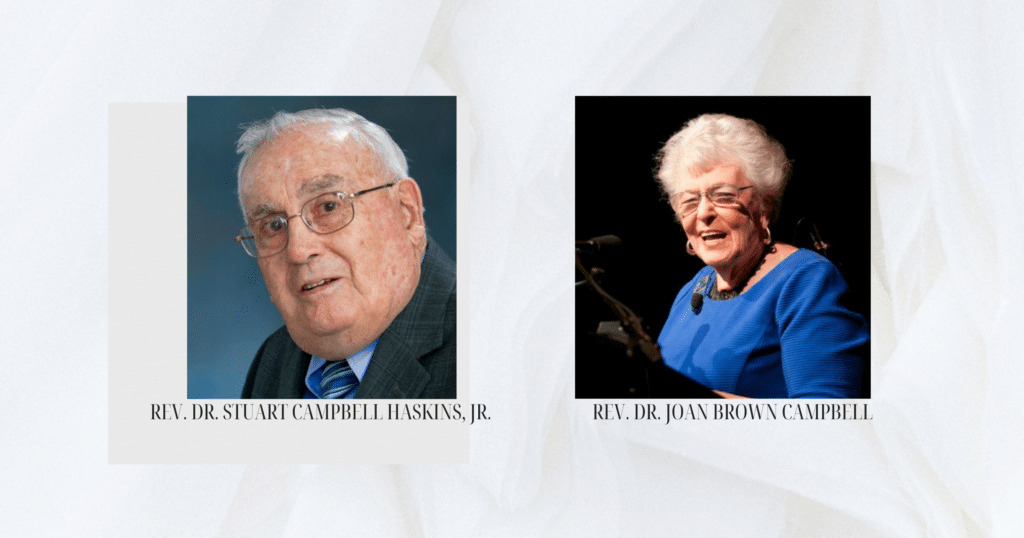Congregations, communities invited to become ‘Apartheid-Free’ through new campaign for Palestinian rights
On a recent trip to Palestine and Israel, the Rev. Allie Perry was part of a delegation that visited the Palestinian village of Al-Araqeeb. She witnessed this community in Israel where about 22 families mostly sleep in tents, beneath trees and in cars, because their homes have been repeatedly destroyed by the Israeli military — more than 200 times, in fact.
After each destruction, the people returned and rebuilt.
The Palestinian people of Al-Araqeeb have documentation of a 100-year-old ancestral connection to the land and are committed to remain there, “but Israel treats them as though they are the occupiers,” said Perry, who chairs the United Church of Christ Palestine Israel Network. “Even though they’re Israeli citizens, as we heard from folks speaking, they don’t feel like it. They don’t get services like electricity and water.”
It is an instance that illustrates what many within the international human rights community — including Yesh Din, B’tselem, Human Rights Watch and Amnesty International — have designated “the crime of apartheid.”
This is the focus of a new Apartheid-Free campaign created by a coalition of faith groups that includes UCC PIN. The campaign is inviting congregations, faith groups and organizations to sign an Apartheid-Free pledge to stand in solidarity with the Palestinian people and build an anti-apartheid movement in North America.
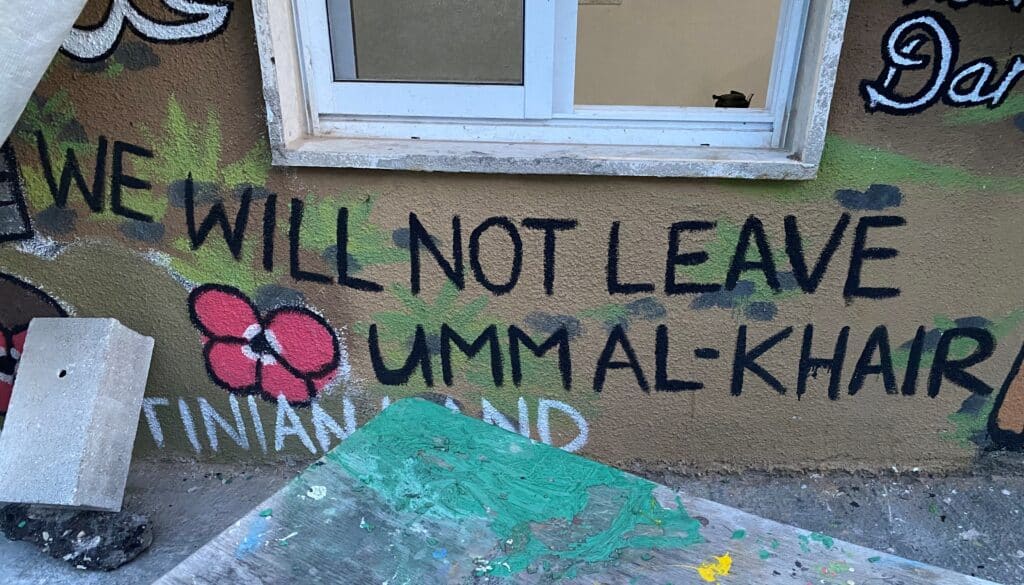
‘A growing movement’
The UCC is a founding member of the campaign and has signed onto the pledge, said Peter Makari, global relations minister for the Middle East and Europe of Global Ministries. He noted that the pledge is consistent with the UCC General Synod resolution from 2021 and broader policies.
The 2021 Synod resolution expressed support for a just peace between Palestine and Israel. It included rejecting “any laws and legal procedures which are used by one race or religion or political entity to enshrine one people in a privileged legal position at the expense of another, including Israel’s apartheid system of laws and legal procedures.”
“Our partners in Palestine and Israel have been using an apartheid framework for two decades,” said Makari. “People are emboldened to name it as such in these days. There’s a growing movement toward that, and this apartheid-free campaign is a way to educate local churches, faith groups and communities to learn about realities on the ground.”
A pledge ‘for all people’
The Apartheid-Free campaign calls on congregations and communities to sign the pledge as a way to declare themselves apartheid-free. This means committing to “freedom, justice and equality for the Palestinian people and all people;” to stand against “all forms of racism, bigotry, discrimination and oppression;” and to join others “in working to end all support to Israel’s apartheid regime, settler colonialism and military occupation.”
The campaign website includes educational resources and suggested actions for how faith-based and other communities can live into the pledge.
The timing of the campaign launch is significant, as this year marks 75 years of displacement and dispossession for the Palestinian people since Israel was established in 1948. Known to Palestinians as the Nakba, or catastrophe, this is “both a historical event and a continuing reality for Palestinians,” whose original refuges and their descendants now number more than 5.5 million people, Makari wrote recently in a reflection on this commemoration.
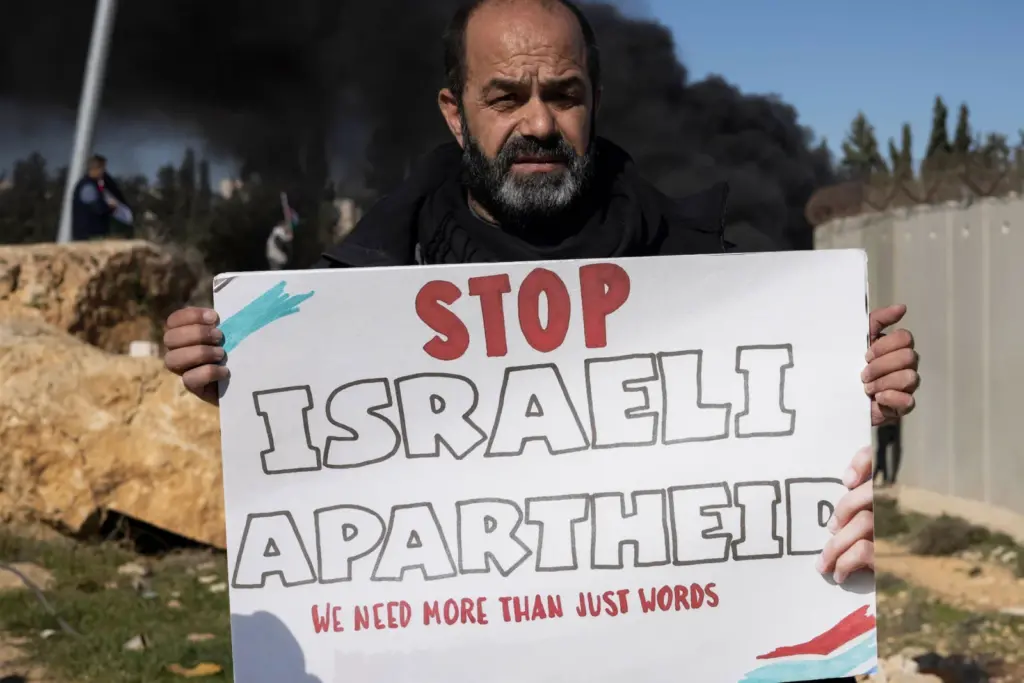
‘Take the Gospel to heart’
Perry traveled to Palestine and Israel from May 5-13 with a delegation of the Apartheid-Free campaign. The 16 representatives included, along with the UCC, representation from Mennonite, Quaker, Episcopal, Presbyterian, Methodist and Baptist affiliations. It was organized by American Friends Service Committee staff.
“It’s really hard to see a system that, by design, is intending to be life-strangulating and soul-crushing,” Perry said. She described visiting the village of Umm al Khair in the West Bank, where power lines that are visible from the village connect to an Israeli poultry farm in one of three illegal Israeli settlements surrounding it. Meanwhile, the people of Umm al Khair lack regular access to electricity and water.
“This is about a profound injustice that needs to be acknowledged and addressed,” Perry said. Referring to the $3.8 billion dollars that the U.S. gives Israel in military aid each year, she added, “We are deeply complicit in supporting Israel’s occupation, their apartheid regime and their settler colonialism.”
UCC PIN signed the Apartheid-Free pledge earlier this year.
“When our steering committee held listening sessions with three of our Palestinian Christian partners, the plea we heard consistently was to ground our analysis of Israel in the reality of its being an apartheid state and to promote the language of apartheid in our congregations,” the grass-roots organization reported. “Adopting the pledge is one way to keep faith with our partners’ plea.”
“I’m grateful that, at the national level, the UCC has signed onto this pledge,” Perry said. “It’s consistent with our resolution, with our history and with standing for justice. That’s what it means, I think, to take the Gospel to heart.”
Several UCC leaders also traveled to the region in April with a three-denomination delegation that included Makari, UCC General Minister and President the Rev. John Dorhauer and UCC Associate General Minister the Rev. Karen Georgia Thompson, who leads Wider Church Ministries and serves as co-executive of Global Ministries. They documented some of their experiences in blog posts.
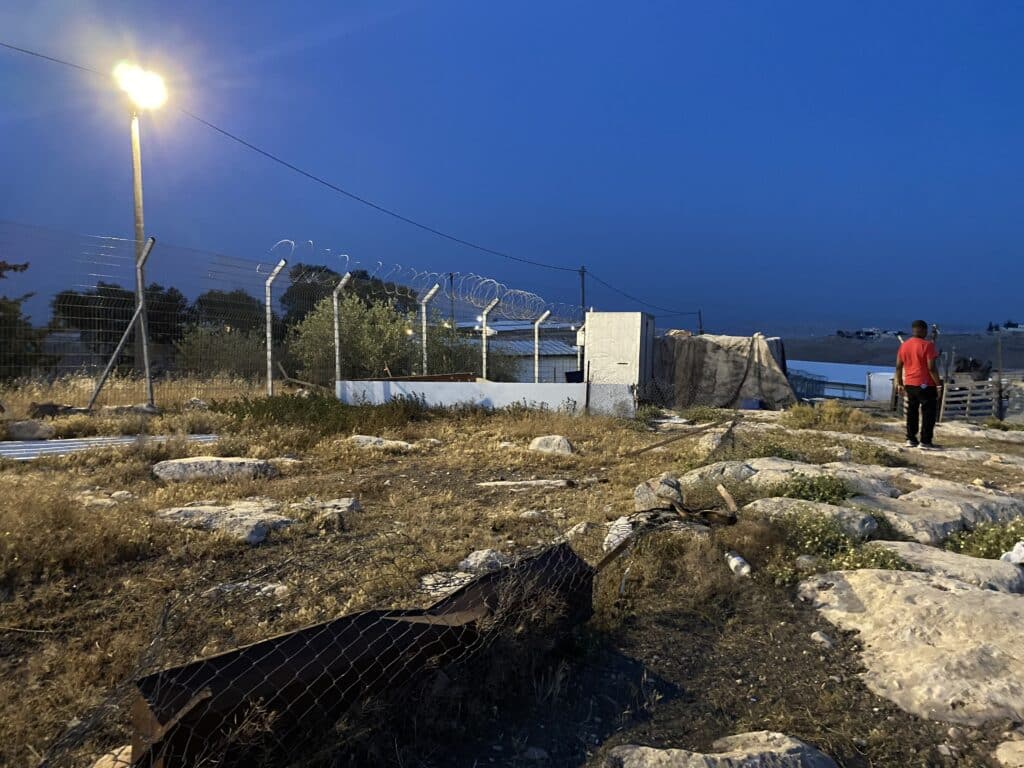
Apartheid-Free at General Synod
Global Ministries and UCC PIN are partnering to offer a workshop on “Becoming an Apartheid-Free Congregation” at General Synod, which takes place in Indianapolis June 30-July 4. Dov Baum, AFSC director of economic activism and an Israeli citizen, will present at the workshop, along with Makari and Perry, on steps for becoming an apartheid-free church and living into that pledge.
The schedule for Synod workshops is forthcoming and will be available here.
Content on ucc.org is copyrighted by the National Setting of the United Church of Christ and may be only shared according to the guidelines outlined here.
Related News
2025 UCC Earth Summit addresses climate change and introduces a new partnership
The United Church of Christ's third annual Earth Summit was held on Saturday, April 26, 2025....
Read MorePeace Be With You…
“…And also with you” is the response on Sunday mornings and on occasions where the peace...
Read MoreBreaking barriers and forging loving partnerships: Two servants of God are remembered
This Eastertide, the United Church of Christ remembers the Rev. Dr. Joan Brown Campbell and...
Read More
